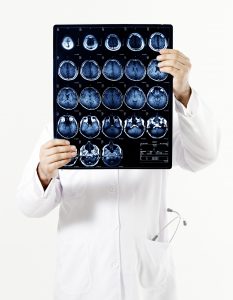Brain Training & Fitness Research
You mean video games won’t make me smarter?

Sorry, kids. As fun as they are to play, video games won’t make you smarter. In a very large study, researchers from the University of Liverpool could not find any evidence that showed a relationship between playing video games and enhanced cognitive ability. In fact, they found that the only improvements were on how well the games were played. So, practice will help you “level up” in the game but probably not in school.
Psychological Bulletin, 2017, 144(2)
Brain training at law school

Want even smarter lawyers trying the big cases? Add brain training to their law school curriculum! That’s exactly what they tried with a small group of law students at Texas Tech University. After 30 days of training skills such as strategic attention, reasoning, and innovation, students showed increased scores of tests of advanced reasoning, integrated reasoning, and visual selective learning. It will be interesting to track their future courtroom success rates!
PD Quarterly, February 2018 (https://papers.ssrn.com/sol3/papers.cfm?abstract_id=3121397)
Trained for happiness

Even though traumatic brain injury frequently results in a cascade of negative emotions including depression, brain training might help! Researchers at the Center for Brain Health at UT Dallas measured depression outcomes for 79 people with TBI before and after two types of brain training. Not only did the group with TBI and depression show a reduction of depression symptoms, their brains showed evidence of cortical thickening. Their brains and emotions improved as a result of cognitive training.
Human Brain Mapping, 2018, 1-17, doi:10.1002/hbm.24052
Grandma, what a beautiful brain you have!

Did you know that changes in the brain following brain training in seniors with mild cognitive impairment are visible on magnetic resonance imaging (MRI)?
In a study published in the Journal of Neuroimaging, Researchers from the Gibson Institute (that’s us!) looked at changes in the Default Mode Network (DMN) of the brain after 72 hours of LearningRx one-on-one cognitive training. MRI results showed increased connectivity, decreased hyperconnectivity, and the emergence of important anti-correlations. What beautiful pictures!
Journal of Neuroimaging, 2018, 28(2) Neuroimaging Outcomes of a Cognitive Rehabilitation Training Program
